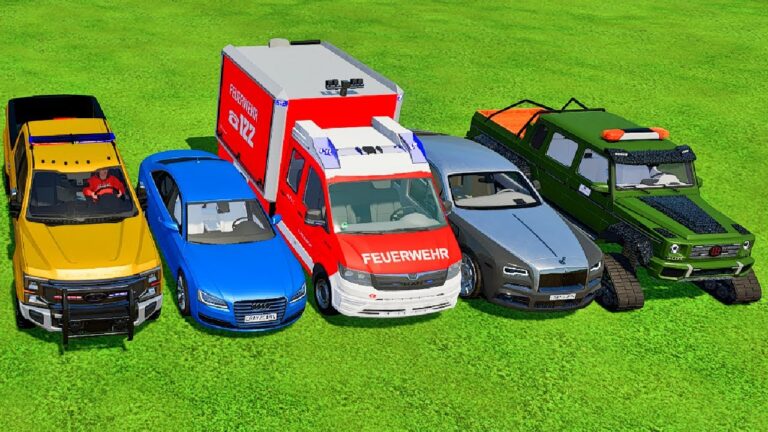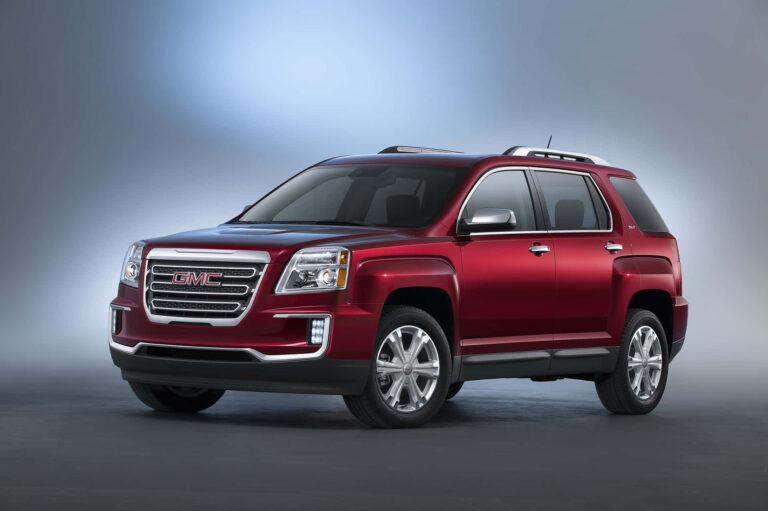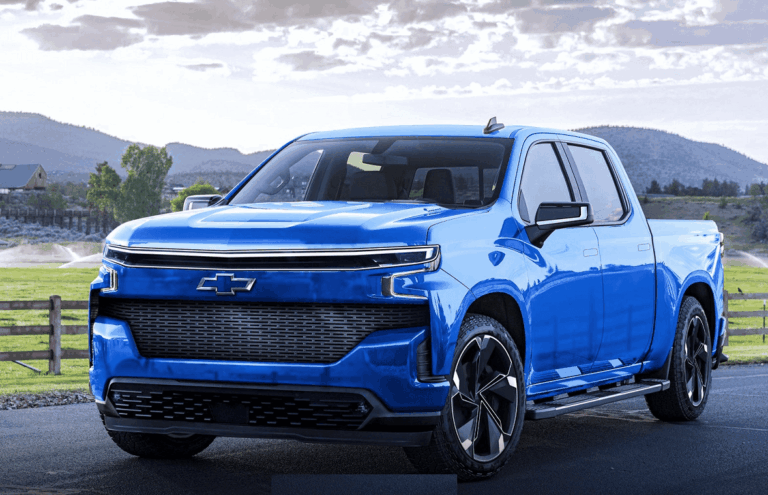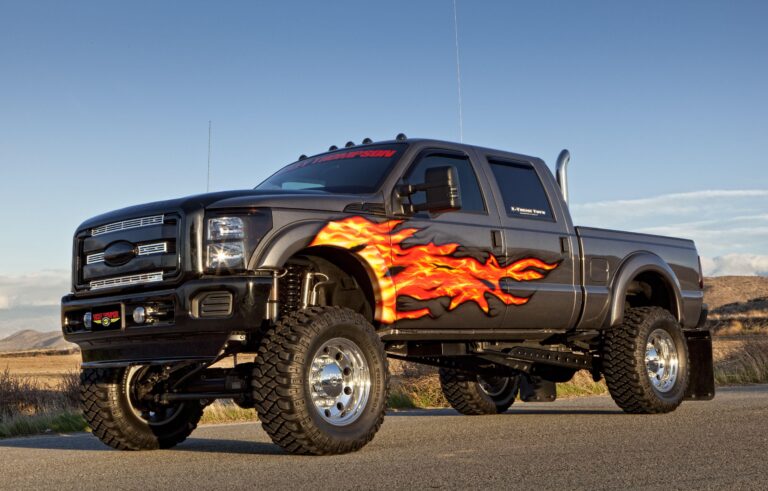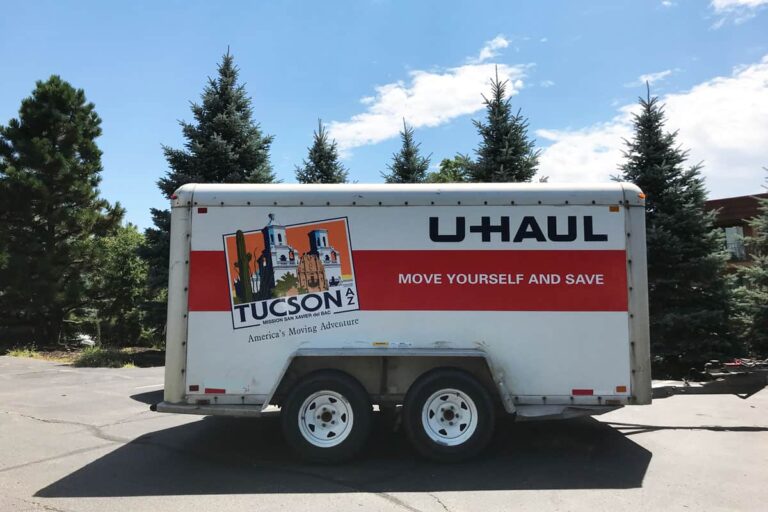Mud Trucks For Sale: Your Ultimate Guide to Finding Your Next Off-Road Beast
Mud Trucks For Sale: Your Ultimate Guide to Finding Your Next Off-Road Beast cars.truckstrend.com
The roar of a high-horsepower engine, the exhilarating splash of thick, soupy mud, the undeniable thrill of conquering challenging terrain – this is the world of mud trucks. For enthusiasts, a mud truck isn’t just a vehicle; it’s a statement, a passion, and a ticket to an adrenaline-fueled community. Whether you’re a seasoned mud bogger looking for an upgrade or a newcomer eager to dive into the sport, navigating the market for "Mud Trucks For Sale" requires knowledge, patience, and a keen eye.
This comprehensive guide will serve as your roadmap, detailing everything from what defines these formidable machines to where to find them, what to look for, and how to make an informed purchase. Prepare to get dirty, because the perfect mud truck is waiting for you!
Mud Trucks For Sale: Your Ultimate Guide to Finding Your Next Off-Road Beast
What Makes a Mud Truck? Understanding the Core Components
A mud truck is a far cry from your average street-legal pickup. These vehicles are purpose-built or heavily modified to excel in the most challenging, low-traction environments imaginable. Understanding their key components is crucial to appreciating their value and assessing their condition.
- Lift Kits and Suspension: This is often the most striking feature. Mud trucks feature extreme lift kits – combining suspension lifts (longer shocks, springs, control arms) and body lifts (spacers between the frame and body) – to provide massive ground clearance. This elevation is vital for clearing deep ruts, rocks, and, of course, mud. Look for heavy-duty components designed to withstand immense forces.
- Large, Aggressive Mud Tires: Arguably the most critical element, mud tires are specifically designed with deep, wide, self-cleaning treads (lugs) to dig through mud, not float on it. Sizes commonly range from 38 inches to well over 50 inches in diameter. Popular brands like Super Swamper, Bogger, and Nitto Mud Grappler are synonymous with serious mudding.
- Reinforced Drivetrain: The stock drivetrain of most trucks simply isn’t built for the stresses of mud bogging. Mud trucks often feature upgraded axles (Dana 60, Dana 70, 14-bolt, Rockwell), heavy-duty universal joints, stronger driveshafts, and robust transfer cases (e.g., NP205, Atlas). Lower gearing in the differentials is common to maximize torque at the wheels.
- High-Horsepower Engines: To spin those massive tires through thick mud, significant power is required. Many mud trucks boast highly modified V8 gasoline engines (e.g., Chevy 454, Ford 460, LS swaps) or powerful diesel engines (Cummins, Power Stroke, Duramax) that have been tuned or rebuilt for maximum torque and horsepower. Performance upgrades like custom exhausts, headers, carburetors/fuel injection systems, and superchargers/turbos are common.
- Protective and Functional Add-ons:

- Snorkels: Essential for deep water crossings, a snorkel raises the engine’s air intake above the waterline, preventing hydro-locking.
- Heavy-Duty Bumpers and Winches: Custom fabricated bumpers offer protection and often house powerful winches, indispensable for self-recovery or assisting stuck buddies.
- Roll Cages: For safety, especially in competitive events or extreme terrain, internal or external roll cages protect occupants in case of a rollover.
- Custom Fabrication: Many mud trucks feature custom-built frames, suspension mounts, and body modifications to accommodate their extreme setups.

Why Buy a Mud Truck? The Thrill and the Utility
The allure of a mud truck extends far beyond its formidable appearance. It taps into a primal desire for adventure, challenge, and camaraderie.
- Recreational Mudding and Competitions: This is the primary reason for most buyers. Mud parks, designated off-road areas, and private lands host events ranging from casual weekend gatherings to serious, timed competitions (mud bogs, mud drags). Owning a mud truck allows you to fully participate in these exhilarating events, testing your vehicle’s limits and your driving skills.
- Off-Road Adventures: Beyond dedicated mud pits, these trucks are capable of tackling almost any challenging off-road terrain, from rocky trails to deep snow, making them ideal for exploring remote areas.
- Community and Camaraderie: The mudding community is a tight-knit group. Owners share tips, help each other with repairs, and celebrate victories together. Buying a mud truck is often an entry point into this passionate network.
- Customization and Personal Expression: Mud trucks are often canvases for mechanical and artistic expression. From paint schemes to engine builds, every truck tells a story about its owner’s vision and dedication.
- Utility in Challenging Terrain: For some, a mud truck isn’t just for fun. Hunters, farmers, or landowners with extensive, undeveloped property might find a mud truck invaluable for accessing remote areas, hauling equipment, or navigating impassable trails.

Where to Find Mud Trucks For Sale: Your Buying Resources
Finding the right mud truck requires knowing where to look. The market is diverse, ranging from dedicated specialists to general online marketplaces.
- Online Marketplaces:
- Facebook Marketplace/Groups: Extremely popular for local and regional sales. Search for "mud trucks," "off-road trucks," or join specific mudding enthusiast groups.
- Craigslist: A long-standing platform for local classifieds. Be specific in your searches and be wary of scams.
- eBay Motors: Offers a wider geographical reach and buyer protection, often featuring more high-end or custom builds.
- Dedicated Off-Road Forums & Websites: Websites like Pirate4x4.com, various truck-specific forums (e.g., Ford-Trucks.com, Fullsizechevy.com), and specialized off-road classifieds (e.g., RacingJunk.com) are excellent sources for serious builds.
- Specialized Off-Road Dealerships/Shops: Some shops specialize in building and selling custom off-road vehicles, including mud trucks. While potentially more expensive, these often come with professional builds and some level of guarantee.
- Auctions: Local auto auctions or specialized equipment auctions can sometimes yield hidden gems, though "as-is" sales require thorough inspection.
- Word-of-Mouth/Mudding Events: Attend local mud bog events, talk to participants, and network. Many trucks are sold directly within the community before ever being publicly listed.
- Local Classifieds/Auto Traders: Don’t overlook traditional methods, especially for more budget-friendly or less extreme builds.
Types of Mud Trucks: Choosing Your Beast
Mud trucks aren’t a one-size-fits-all category. Your intended use will dictate the type of truck you should seek.
- Purpose-Built Mud Boggers/Racers: These are the extreme machines, often not street legal. They are built purely for competition, featuring massive tires, custom tube chassis, powerful race engines, and stripped-down interiors. They are typically trailered to events.
- Trail/Mud Hybrids: More versatile, these trucks aim to balance mudding capability with trail riding and sometimes even street legality. They might have slightly smaller (but still very large) tires, more robust suspension for varied terrain, and retain some interior amenities.
- Daily Driver with Mud Capabilities: These are often stock trucks with mild to moderate lifts and aggressive mud tires, capable of handling light to moderate mudding while still being practical for daily use. Compromises are made on extreme capability for everyday comfort and legality.
- Based on Popular Models:
- Ford F-Series (F-150, F-250, F-350): Known for their robust frames and powerful engines, especially the older "bricknose" and "bullnose" models, and newer diesel F-Series.
- Chevy Silverado/C/K Series: Popular for their strong drivetrains and readily available parts, with classics like the square body C/Ks and newer Silverados being common bases.
- Dodge Ram: Respected for their Cummins diesel engines, which offer immense torque for mudding.
- Jeep (Wrangler, Cherokee, Comanche): While often smaller, Jeeps are highly customizable and excel in maneuverability, making them formidable mud machines, especially the older full-size models.
- Toyota (Tacoma, Tundra, Land Cruiser): Known for their reliability, though often requiring more extensive modification to compete with full-size American trucks in deep mud.
- Diesel vs. Gas: Diesels offer immense low-end torque, which is fantastic for turning large tires and crawling through thick mud. They are often more fuel-efficient (relatively speaking) but can be more expensive to modify and repair. Gasoline engines can be built for higher horsepower and often have a wider aftermarket for extreme builds.
Key Considerations When Buying a Used Mud Truck
Purchasing a used mud truck is not like buying a used sedan. These vehicles live hard lives, and thorough inspection is paramount.
- Budget: Beyond the purchase price, factor in potential repairs, maintenance (which will be higher than a regular truck), fuel costs (mud trucks are thirsty), insurance (can be tricky for highly modified vehicles), and transportation if it’s not street legal.
- Condition – Rust is the Enemy: Mud and water are corrosive. Inspect the frame meticulously for rust, cracks, or previous repairs. Check body mounts, suspension points, and floorboards. Surface rust is common, but structural rust is a deal-breaker.
- Drivetrain Integrity:
- Axles: Check for bent axle housings, leaking seals, and play in the wheel bearings.
- Driveshafts: Look for dents, worn U-joints, and proper alignment.
- Transfer Case & Differentials: Listen for unusual noises, check for leaks, and ensure proper engagement of 4×4.
- Engine Health: Look for leaks, listen for knocks or unusual noises, check fluid levels and clarity. Ask about recent maintenance, rebuilds, or performance modifications. A compression test can be very revealing.
- Suspension Components: Inspect leaf springs for sagging or cracks, coil springs for damage, shocks for leaks, and all mounting points for integrity. Check steering components (tie rods, drag link, steering box) for excessive play.
- Quality of Modifications: Not all modifications are created equal. Look for professional welding, proper wiring, and correctly installed aftermarket parts. Shoddy work can lead to dangerous failures.
- Intended Purpose: Be honest about how you’ll use the truck. A competition-ready bogger is impractical for casual trail riding, and a mild build might disappoint in deep mud.
- Legality (Street vs. Off-Road Only): Many highly modified mud trucks are not street legal due to tire size, height, emissions, or noise regulations. Understand your local laws and the implications for transport and registration.
- Test Drive: If possible, test drive the truck, ideally in conditions similar to its intended use (safely and legally). Listen for noises, feel for vibrations, and check steering and braking.
- Pre-Purchase Inspection (PPI): If you’re serious about a truck, invest in a PPI by a reputable off-road mechanic or fabricator. They can spot issues you might miss.
Tips for a Successful Purchase
- Do Your Research: Understand common issues for the specific make and model you’re considering. Read reviews, watch videos, and learn about typical modification paths.
- Ask Detailed Questions: Don’t be shy. Inquire about the truck’s history, how often it’s been mudded, what parts have been replaced or upgraded, and why the seller is parting with it. Ask for maintenance records if available.
- Inspect Thoroughly: Bring a flashlight, get under the truck, and spend time looking at every component. Don’t rush.
- Negotiate: Always be prepared to negotiate the price. Mud trucks are often sold by enthusiasts, and there’s usually some wiggle room.
- Understand the Title/Registration: Ensure the title is clear and transferable. If the truck isn’t street legal, understand the process for obtaining an off-road-only title or how you’ll transport it.
- Factor in Transportation Costs: If the truck isn’t street legal or you’re buying it far away, you’ll need to arrange for a flatbed tow or professional transport.
Challenges and Solutions
- Hidden Damage/Wear:
- Solution: Thorough PPI, ask for detailed photos/videos, inquire about its competition history.
- Legal/Registration Issues:
- Solution: Research local laws before buying. If it’s a competition-only vehicle, ensure you have a plan for transportation.
- High Maintenance and Operating Costs:
- Solution: Budget accordingly. Learn basic mechanics to perform routine maintenance yourself. Join forums to get advice on common repairs and cost-effective solutions.
- Finding the "Right" Truck:
- Solution: Be patient. The perfect truck might not appear immediately. Broaden your search radius and be open to different makes/models if they fit your criteria.
Mud Trucks For Sale: Representative Price Guide
Prices for mud trucks vary dramatically based on the base vehicle, extent and quality of modifications, condition, and location. This table provides a general guide and should not be taken as definitive pricing.
| Category | Typical Base Vehicle | Key Features | Estimated Price Range (USD) | Notes |
|---|---|---|---|---|
| Entry-Level/Mild | Older F-150/Silverado/Ram (80s-90s) | 6-8" lift, 35-38" tires, mild engine mods, stock axles, basic protection | $5,000 – $15,000 | Good for casual mudding, trail riding. May have more wear and tear. Often street legal. |
| Moderately Modified | Newer F-250/Silverado/Ram (late 90s-2000s), Jeep TJ | 10-14" lift, 40-44" tires, upgraded axles (e.g., Dana 60), decent engine | $15,000 – $35,000 | Capable for deeper mud and more challenging trails. Might require some sorting. Some may still be street legal with caveats. |
| Purpose-Built Bogger | Custom tube chassis, Heavy-duty pickup frame | 16"+ lift, 48"+ tires, Rockwell/custom axles, highly built engine, cage | $35,000 – $80,000+ | Often not street legal. Built for competition. Extensive custom fabrication. Prices depend heavily on engine and component specifics. |
| Premium Custom/Pro-Build | Any desirable chassis, new or meticulously restored | Top-tier components throughout, custom suspension, high-end engine, show-quality finish | $80,000 – $200,000+ | Professional builds, sometimes with racing history. Investment-grade vehicles, often turn-key for competition. |
| Project Truck | Any make/model, often incomplete or non-running | Varying levels of modification, but requires significant work and parts | $1,000 – $10,000 | For the mechanically inclined. Expect to invest significant time and money. High risk, high reward. |
Frequently Asked Questions (FAQ)
Q1: Can I drive a mud truck on the street?
A1: It depends heavily on the extent of modifications and your local vehicle laws. Many moderately modified trucks can be street legal if they meet height restrictions, tire coverage laws, lighting requirements, and emissions standards. Purpose-built boggers are almost never street legal and must be trailered.
Q2: How much does it cost to maintain a mud truck?
A2: Maintenance costs are generally higher than for a standard truck. Extreme use, large tires, and specialized components lead to increased wear and tear. Expect higher fuel consumption, more frequent fluid changes, and potential for expensive drivetrain or suspension repairs. Budget for ongoing maintenance and potential breakage.
Q3: What’s the best truck to build a mud truck from?
A3: There’s no single "best," but popular choices include older Ford F-Series (F-250/350), Chevrolet C/K series (especially square bodies and early 2000s Silverados), and Dodge Rams (particularly with Cummins diesels). Jeeps (Wrangler, Cherokee) are also popular for their off-road prowess in a smaller package. The "best" depends on your budget, desired power, and available aftermarket support.
Q4: Do mud trucks get good gas mileage?
A4: No. Mud trucks are notorious for very poor fuel economy. Large, heavy tires, lifted suspensions, modified engines, and often lower gearing contribute to significantly reduced miles per gallon compared to a stock vehicle.
Q5: What should I look for when inspecting a used mud truck?
A5: Prioritize checking for rust (especially on the frame, body mounts, and suspension points), the integrity of all welds (especially custom fabrication), leaks from the engine, transmission, transfer case, and axles, excessive play in steering and suspension components, and the overall condition of the tires. Always ask about the truck’s history and how it was used.
Q6: Is mudding dangerous?
A6: Like any extreme sport, mudding carries risks. Rollovers, collisions, and mechanical failures can occur. Proper safety gear (seatbelts, helmets in competition, fire extinguishers), understanding your vehicle’s limits, driving within your skill level, and never mudding alone are crucial for safety.
Conclusion
Embarking on the journey to find "Mud Trucks For Sale" is an exciting prospect, opening the door to a world of off-road adventure and a vibrant community. From understanding the intricate components that make these beasts tick to knowing where to find them and what pitfalls to avoid, this guide has armed you with the essential knowledge.
Remember, patience, thorough research, and a critical eye are your best allies. Don’t be afraid to ask questions, inspect every detail, and if possible, get a professional opinion. The perfect mud truck is out there, waiting to tackle the next mud pit with you at the helm. So, get ready to embrace the grime, the glory, and the unparalleled thrill of mudding!


